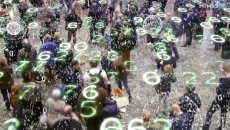Artificial Intelligence
Uploaded temperature readings from a million Kinsa Health devices are enabling the company to map atypical fevers, offering a potential warning of increases in virus infections.
The private-sector collaborative includes EHR vendors (Epic, athenahealth), Big Tech (AWS, Microsoft), health systems (Mayo, Intermountain) and many others, all working to speed development of "secure, ethical, innovative, open source" tools to combat the crisis.
The map identifies populations likely to experience severe outcomes once infected – and the socioeconomic drivers for such a risk, helping providers allocate resources.
“Instant triage” capability from behold.ai could speed diagnosis of COVID-19 and help ensure resources are allocated properly.
Deep Dive: From clinical decision support to revenue cycle to cybersecurity, machine learning algorithms are already transforming healthcare – but implementation is key.
Up until now, the role of these olfactory genes outside the nose has been largely unknown.
Cybersecurity firm CynergisTek is using AI to help hospitals detect unauthorized access to electronic health records and prevent breaches caused by coronavirus curiosity.
Program administered by The University of Hong Kong has international implications and applications; clinicians leverage wearables and AI to accelerate disease surveillance and interventions.
The new system, developed with Microsoft Azure, is designed to help healthcare organizations align community resources to identify gaps and social barriers to care.
The partnership is designed to deliver real-time awareness for better outcomes and significant cost savings while making care more human with the power of AI, the organizations say.
